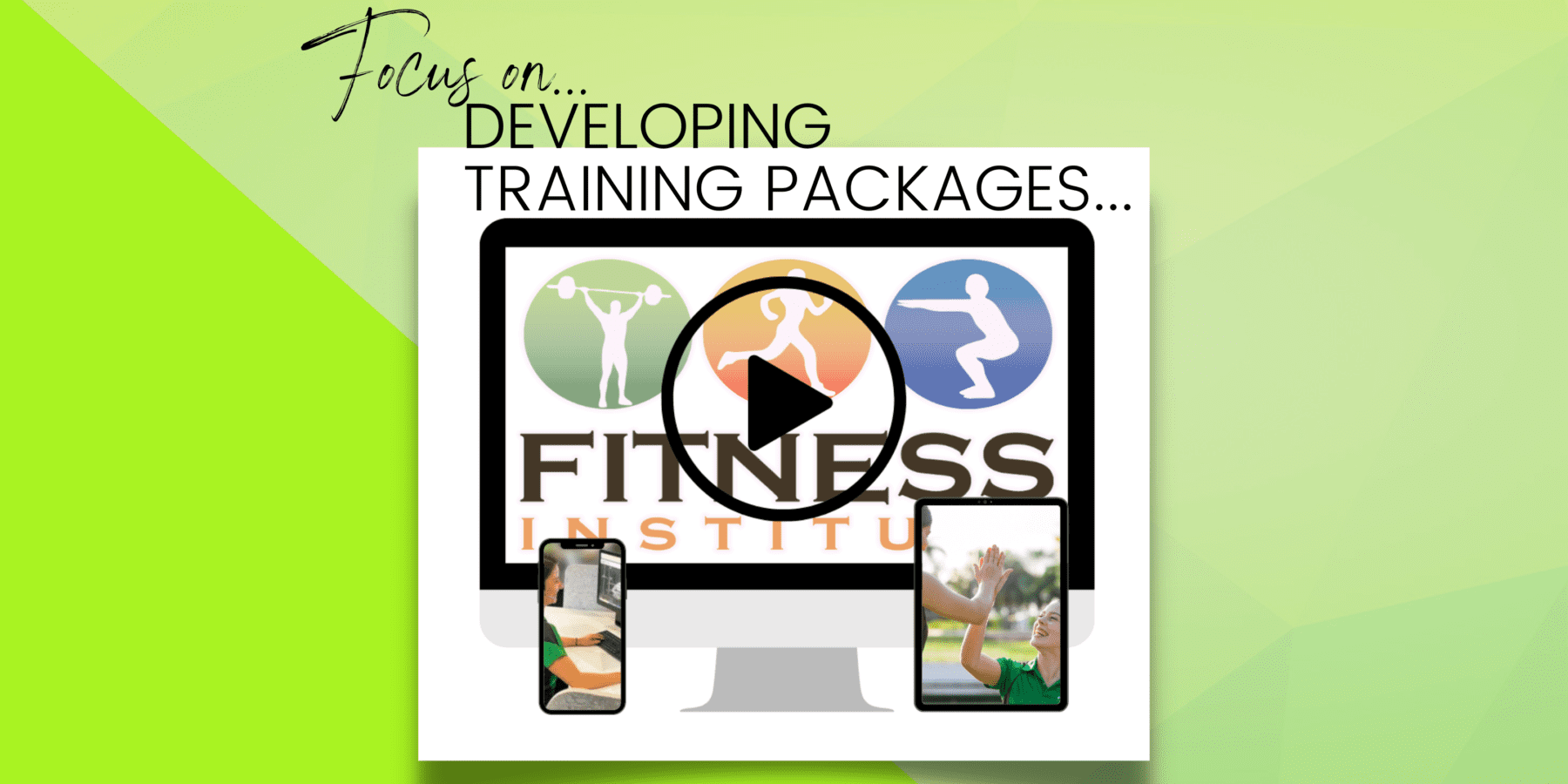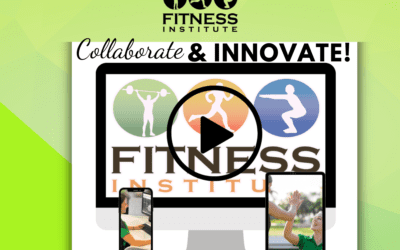Ever asked why some subjects are in Fitness Qualifications, only to be told “It’s in the Training Package”?
If you’re keen to learn why and how this happens, read on as we outline how Training Packages are created and how Fitness Institute develops its training courses based on these requirements…..
Firstly, what is a “Training Package”?
A Training Package is best defined as a nationally endorsed qualification that is based on workplace standards, around which training and assessment activities can be developed.
So, why do Training Packages keep changing?
To ensure Training Packages remain up to date and relevant so graduates are prepared for the industry they’ll be working in, they are reviewed after a period of time.
This process includes a lot of industry consultation where feedback is invited from a range of invested parties.
In the Fitness industry, this includes business owners, managers, trainers, assessors and people for whom the qualifications are created such as Personal Trainers, Strength and Conditioning Professionals and Fitness Instructors.
After a period of consultation that often includes the creation of multiple drafts, feedback is collated and considered.
Decisions are made around the best way to recognise and assess the practical skills and knowledge identified as essential to the industry and equip learners for a career in sport, fitness and recreation.
Once a Training Package is fully developed, it is put forward to a Skills Minister to endorse, then it is released for RTO’s to develop the required training and assessment processes.
The Certificate 3 and 4 in Fitness was reviewed in 2021 for implementation in 2022 / 2023, These qualifications are known as SIS30321 and SIS40221.
How did Fitness Institute approach developing the latest Certificate 3 and 4 in Fitness?
Training packages are designed to show a graduate is competent and has a level of knowledge and practical skills. To this end, Fitness Institute’s development team emphasised practical delivery and foundation skills throughout the course, which in turn helps Instructors and Trainers gain much needed real world experience in an online learning environment.
While knowledge is important, it is essential to not lean too heavily on theory-only training and assessment.
Feedback from learners tells us they are better prepared with a balanced approach of theory and practice as this leads to being able to apply the skills learned throughout the courses quickly.
It’s also evident that completing courses with abilities and experiences gained through realistic, hands-on activities significantly increases a graduate’s confidence and long term success in the industry.
What goes into a Training package?
Each Training Package contains what is known as “Core” units that have to be included, as well as a set number of “Electives” an RTO adds at their discretion. Elective units must be selected from nominated training courses.
11 of the 15 units in the Cert 3 in Fitness are core units:
- Provide First Aid
- Deliver and monitor a service to customers
- Organise personal priorities
- Participate in workplace health and safety
- Complete pre-exercise screening and service orientation
- Complete client fitness assessments
- Plan group exercise sessions
- Instruct group exercise sessions
- Develop and instruct gym based exercise programs for individual clients
- Use anatomy and physiology knowledge to support safe and effective exercise
- Provide healthy eating information
Core units for Certificate IV in Fitness are:
- Develop and instruct personalised exercise programs and sessions for the general population, older and adolescent clients as well as body composition goals
- Establish and manage client relationships
- Use exercise science principles in fitness instruction
- Support exercise behaviour change
- Establish and maintain professional practice for fitness instruction
- Support health eating for individual fitness clients
What electives did Fitness Institute choose?
Based on Fitness Institute’s industry consultation and experience, the four additional units chosen to complement Cert 3 core units include applying business risk management processes and infection prevention and control to develop an understanding of safety practices in a modern workplace.
A sales unit was selected to complement and develop customer service skills and the unit on facilitating inclusion programs for people with disability will help develop a greater understanding of programming for diverse fitness needs.
For the Cert 4 in Fitness, Fitness Institute chose to include three exciting Strength and Conditioning and Fitness Business subjects to help budding Personal Trainers excel in their careers.
Subjects cover the use of technology for sport, fitness and recreation, developing and instructing long term strength and conditioning programs plus researching and developing business plans, establishing legal and risk management requirements and marketing a business venture.
Keen to learn more about Training Packages?
We recommend checking out the following links:
https://www.dewr.gov.au/training-package-assurance
https://www.dewr.gov.au/nci/training-packages





